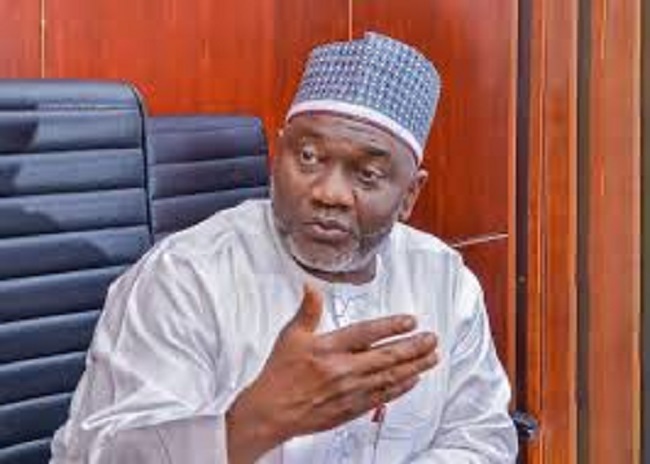By: Dr. Tijani Abutu, Abuja
As Nigeria approaches another crucial phase in its democratic journey, particularly with the general elections fast approaching, political conversations are intensifying. Across the country—and notably within Kogi State—aspirants are either openly declaring their intentions to contest various elective positions or engaging in subtle campaigns through their proxies. Amid this flurry of political activities, it becomes vital to focus on the dynamics in Kogi East, one of the most politically strategic and demographically significant senatorial districts in Nigeria.
Kogi East is not only the largest senatorial district in Kogi State, but it also boasts a rich political history and cultural heritage, primarily dominated by the Igala ethnic group. Historically, the district held an influential position in determining the political direction of the entire state. From 1999 to 2015, three successive governors—Prince Abubakar Audu, Alhaji Ibrahim Idris, and Captain Idris Wada—all hailed from Kogi East. During this era, the district wielded considerable power, shaping political outcomes and policy directions across Kogi State.
Ironically, this period of gubernatorial dominance did not always translate into equally strong legislative influence at the federal level. While Kogi East held sway over executive positions in the state, many constituents expressed concerns about the effectiveness and accountability of the district’s representation in the National Assembly. This perceived imbalance contributed to missed opportunities for structural development and reduced federal engagement.
The tide turned in 2015 with the emergence of Yahaya Bello from Kogi Central as governor—a development many regarded as a divine reordering of the state’s political architecture. Since then, Kogi East has seen its political dominance redefined, now focused primarily on legislative roles at the national level.
Given this backdrop, it becomes not only necessary but imperative for the people of Kogi East to re-strategize and consolidate their political strength. The most viable route is through effective and visionary representation at the National Assembly. In this context, the role of a senator goes beyond lawmaking—it encompasses strategic lobbying, national influence, constituency development, and the ability to attract tangible dividends of democracy. These responsibilities become even more impactful when carried out by ranking senators.
In the Nigerian Senate, experience matters. Ranking senators—those who have served multiple terms—naturally command more respect, enjoy greater privileges, and are more likely to attain leadership positions in critical committees. These roles enhance their ability to influence federal budgets, attract high-impact projects, and negotiate more effectively with the executive and other arms of government.
This is not merely theoretical. We have seen how senators like Ali Ndume (Borno South, since 2003), Enyinnaya Abaribe (Abia South, since 2007), and Ahmad Lawan (Yobe North, since 1999) have consistently delivered major constituency projects, thanks to their long-standing presence and influence in the National Assembly. Their voices are prominent, and their decisions carry weight in national policymaking.
For Kogi East, re-electing Senator Jibrin Isah Echocho offers a unique opportunity to build similar long-term influence. In just five years, Echocho has proven to be a diligent and effective legislator, laying a solid foundation for a more empowered and respected Kogi East presence in Abuja.
Senator Jibrin Isah Echocho is not your typical career politician. As a seasoned technocrat with decades of experience in banking and financial administration, his entry into politics brought a refreshing wave of professionalism, discipline, and empathy—qualities that have translated into visible development across his constituency.
Under his watch, Kogi East has witnessed an unprecedented rollout of constituency projects. From rural road construction to the establishment of healthcare centers, potable water systems, and schools, Echocho has demonstrated how a senator’s influence can be felt at the grassroots. His focus on mental health, women empowerment, and agricultural development—particularly through the distribution of farming equipment and tractors—has positively impacted countless families.
Beyond infrastructure, Echocho has shown strong commitment to human capital development. He has facilitated federal job placements for numerous youths across the district and has provided logistical and financial support to help them transition successfully—an uncommon but commendable gesture that reflects his deep concern for constituents’ welfare.
What further sets him apart is his continued presence and investment in his community. His major personal projects, especially in education, are situated in his hometown, showing a level of authenticity and grassroots connection that is rare in modern Nigerian politics. It is not an exaggeration to say that there are few communities in Kogi East without someone who has benefitted directly or indirectly from Echocho’s work.
As Nigeria continues its democratic journey and Kogi East defines its political future, the choice of who represents the district in the National Assembly must be made with clarity, purpose, and long-term vision. The temptation to revert to partisan rivalry or parochial interests must be resisted.
Re-electing Senator Jibrin Isah Echocho is not merely about acknowledging past achievements—it is about unlocking future opportunities. A third term would elevate him to the ranks of senior senators, giving him the leverage to attract bigger projects, chair influential committees, and shape national decisions that affect not just Kogi East, but Kogi State as a whole.
Replacing a performing senator midstream would be akin to changing a winning team in the middle of a championship game—ill-advised and potentially damaging. Kogi East cannot afford that setback.
This is a generational moment for the people of Kogi East. The coming election is more than a political contest; it is a referendum on the district’s future. It is not about personalities, but purpose. Not about today’s noise, but tomorrow’s promise.
If the goal is to reclaim lost ground, reassert national relevance, and secure real development, then continuity of credible leadership is the path forward. Senator Jibrin Isah Echocho has shown what is possible—and with broader support, he can achieve even more.
In conclusion, the people of Kogi East must rise above the usual electoral distractions and embrace the higher cause of continuity, consolidation, and capacity. Echocho is not just the best candidate on paper; he is the best candidate in results, in commitment, and in vision.
The task is simple but vital: Re-elect Senator Jibrin Isah Echocho—not just for today’s gains, but for the future of Kogi East, Kogi State, and Nigeria.






